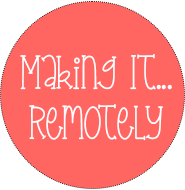This article will show you how to get started with eCommerce as a shop owner. After it's set up and established with an audience, an eCommerce shop can provide a steady source of passive income. And like many of the side hustle ideas we’ll cover, you don’t need technical certifications or a degree to get started.
An article published in by Forbes in 2024 71% of businesses have a website. That means that there are around 29% of business owners out there who have no website at all. That means no blog, static website or online shop. According to the article, this is an increase from previous years and mostly attributed to the pandemic.
All of that makes sense, but I've also found that in many circles, there is still a belief, that it takes a huge budget and coding skills to build a website. However we'll show you a few affordable tools you can use to quickly and easily set up shop.

Which Category Describes You?
We will talk about two basic categories of business owners who have no web presence.
Selling Options for a Physical Shop Owner
One is the small business owner who has a physical shop, but no web presence at all. This person is currently running a brick and mortar store, café, shop, salon or spa where people come to their establishment to receive services.
These business owners may want to expand their capabilities to sell products in an online store. They have specific products they use and carry in their physical location that they could expand to sell to an online audience.
For example, a hair salon owner might use a specific shampoo and conditioner on their clients, also making it available for sale in their physical shop. Making it available online is not only convenient for their clients, but it makes it available to anyone in any location who wants to buy it.
They may also want to sell products that compliment what they sell in their physical location that they can promote to expand their earning potential. In this case, selling branded t-shirts, mugs and caps might be a way to bring in extra income.
Some businesses like salons, cafes and spas may use and pay for apps to book appointments and reservations online and offer coupons, packages and discounts to expand their service. Having their own site and using plugins that perform those functions means they no longer have to rely on an app to generate more revenue.
Build a Loyal Following with Thrive Leads
Place well designed, aesthetically pleasing lead generation elements wherever you need them, with simple drag and drop functionality.
Enter your text here...
Enter your first name and email address to start generating more leads and sales.
Selling Options for Handmade or DIY Business Owners
The second kind of business owner doesn't have people who come to a physical location to receive services. These business owners may work out of their homes, doing the majority of their work with other businesses by phone or (believe it or not) fax. They may also provide handmade products or DIY services in their local community.
They may travel to a customer's home, book home parties, travel to a nearby town for a craft show or visit another location to perform their work. Someone like a realtor, interior designer, electrician or plumber, appliance or mobile repair person would fit into this category.
These business owners may want to open an online shop to sell things like equipment and tools they use to perform their jobs.
For example, an electrician or plumber might want to sell tools, equipment, gear, online courses, digital schematics and more.
They may want to benefit from becoming an affiliate and receiving a commission for recommending the items they use each day. Who better to become a brand advocate for the products they use and recommend to their customers than the experts!
Some business owners in this category may want to book appointments online and offer discounts and package deals as well.
Selling Options for Business Owners Who Need a Website or Shop Do-Over
There is also a third kind of business owner who has an online presence that leaves a lot to be desired. Technically, they have an outdated website or shop that looks like it was created in the 80's. And they either don't have a shop platform on it at all or they have one that looks amateurish and doesn't showcase their products in the best light.
These business owners need a shop or website update and do-over. They would sell more if they simply performed an update to a mobile friendly platform and included functionality that allows them to generate leads and create a buying process that resonates with their audience.
If you need an eCommerce shop, blog or a website do over, you have lots of options. Before making any changes, be sure to back-up your site. If you need help with the back up, it's important to contact your hosting provider for instructions. Each provider is different but they will let you know the steps needed to change or upgrade your site.
- If you're on a self hosted WordPress platform you can do it yourself (DIY) and make the changes yourself. Start by looking over our demo site examples and following the parts of our free blogging tutorial that you need to fix your site.
- You can also start all over with a completely new installation of WordPress or you can revamp your theme to give your site a much needed update.
- You can also hire us to build it for you by clicking here and completing a form that gives us a few details. We will contact you within 1-2 business days to discuss your project.
Selling Options for New Business Owners
And the final group is of course, new business owners who want to start a business selling products online. They need a shop, blog or website with payment processing functionality to start their thriving online journey.
It's important for all these businesses from the physical shop owner to the new owner to have an online presence. They have different needs, but the final outcome is to open a shop that gives them a marketing and selling system that works. They need the ability to earn passive income while they deal with other aspects of their businesses.
How to Get Started
We’ll cover a few easy to use, affordable platforms for small businesses that want to get into eCommerce. Learning how these platforms work and whether they would be a good fit for your business is the first step.
These include online marketplaces like Amazon, Walmart, Facebook, Etsy, and a host of other marketplace providers that will enable you to sell and showcase your products. Using these platforms you can sell products that are handmade (Etsy), or products that are made by others (affiliate marketing).
WooCommerce and Shopify are self hosted platforms. This means these companies provide hosting (they rent server space to their users) and the shops created on these platforms belong to the business owners.
There are a variety of ways that you can promote and cross promote these products using a blend of social media, affiliate marketing, online marketplaces and a blog or website. This includes written, audio and video reviews on products you personally use on YouTube, or on a podcast.
Qualifications
You don’t need a degree or special certifications to thrive as a shop owner, however the more you know about the platform you choose to sell from, and marketing online, the better.
Becoming a successful shop owner requires knowledge of the platform you choose (the features and benefits, and how they can help your business). You need knowledge of your niche, a basic knowledge of the products you choose to promote, how those products help your ideal customers and the ability to use the internet to promote products and provide excellent customer service.
To become a shop owner you need , your ideal customers, products to sell and a shopping platform of your choice.
For example, if you choose Etsy, have a good understanding of their policies, what you can and cannot do from a marketing perspective.
Learn about the types of products you can sell on Etsy and what they require in terms of fees before you get started. Take a moment to do your research and decide if the Etsy platform will work best for your business.
A great way to start an eCommerce store is to identify a niche that is a great fit for your business, and start promoting products that people in that niche will want to buy.
Believe it or not, if you start promoting products, without a strategy or niche, and you try to appeal to everyone, you’ll end up appealing to no one. It's very important to niche down.
Why It's Important to Find Your Niche
Ease of Entry
It’s relatively easy to become a shop owner. There are many affordable platforms that allow you to open a shop.
For example, if you have an existing website or blog, that has an established audience, you can add an eCommerce store with a free tool like WooCommerce.
If you’re new to the world of eCommerce and you want to focus primarily on selling your own products, and not blogging or creating lots of content, Shopify or Etsy might be a great way to begin.
Are You Ready to Start a Blog?
Take Our Free Blogging Tutorial for Beginners to Build a WordPress Site
At the same time, it can be overwhelming if you don’t start an eCommerce business without a plan. Researching your niche, the kinds of people who are in your niche, their challenges and the solutions you can provide with your shop will start you on the path to a successful online business.
To start, your plan should include what you’re going to sell, who you’re going to sell to (your ideal customer), and the niche that your shop will serve. Finally, it’s important to do the math and determine whether your plan will help you reach your personal and financial goals.
You have two choices or you can use a blend of these methods. You can (1) create products that your ideal customers (from your niche) will want to use or (2) find products that you can promote as an affiliate to earn money from your shop.
The only real credentials you need is the plan mentioned above and a willingness to learn about sales and marketing online, the industry you serve as well as your customers. Providing great customer service to build positive relationships with your customers and more business for your shop.
DIY Business Cards
 Custom Business Cards - Coral - Ryan Condensed - $19.99 Set of 50. Ryan Condensed Style, Coral, Personalized With Your Words, / Custom Business Cards - Coral - Ryan Condensed |
 Custom Business Cards - Moonlight - Willow - $19.99 Set of 50. Willow Style, Moonlight, Personalized With Your Words And Photo, / Custom Business Cards - Moonlight - Willow |
 Custom Business Cards - Pink - Watercolor Droplets - $19.99 Set of 50. Watercolor Droplets Style, Pink, Personalized With Your Words, / Custom Business Cards - Pink - Watercolor Droplets |
Equipment and Gear
The equipment and tools you’ll need to open an eCommerce site includes a (1) reliable internet connection, (2) a computer, tablet or laptop that you can use to work from and (3) an eCommerce platform that you can sell from (4) products that appeal to your target audience (5) a graphic design tool to optimize social media, email and website elements (6) and a lead generation plugin that you can use to start and nurture an email list. And (7) I would also recommend establishing your business with a structure that protects your assets and makes you an official business owner in your state.
Getting Started with Etsy
The platform you use to sell your products should be easy to use and affordable. With a shop on Etsy for example, or Facebook marketplace, or Amazon FBA, it's relatively easy to list your products on these sites. And your listings will reside on two very popular platforms that already have the trust factor and tons of established traffic.
The drawback to using these platforms is that they don't belong to you. This means you have to follow the rules set by each platform to ensure that you're able to continue selling with no hassles.
Another drawback is your ability (or not) to generate leads. On some platforms you may sell products to what you might consider to be your customers. However, some platforms consider anyone you sell products to as their customers.
There's no ability to communicate with people who have bought from you after the sale is over. If you do, it could be considered a violation of the company's terms. Violating company terms can get your shop shut down or banned for and undefined amount of time.
To avoid issues, be sure to read company policies and understand what you can or cannot do when selling on any platform.
You can use specific tools like eRank for Etsy to find popular keywords that will help you rank on their site using SEO.
Getting Started with WooCommerce
When it comes to WooCommerce and Shopify, ownership belongs to you because they are both self hosted platforms. The drawback is that you will be responsible for finding your audience and driving traffic to your store.
With WooCommerce, you'll need a WordPress site and a hosting provider (the hosting providers we recommend for beginner sites are Bluehost, WP Engine or Hostgator), and of course a traffic source. You might want to establish as many sources of traffic as you can find.
If your WordPress blog or website is already set up and driving traffic, you can just add a store using WooCommerce and start selling.
If you're using a free theme, it may be time to use paid WooCommerce themes and templates to make your shop more attractive to potential buyers. However with an established audience it will be easier to start getting sales in your shop.
WooCommerce also links with email marketing providers like aWeber, Convertkit and Mailchimp which makes starting an email marketing list really easy.
If you don't have an online presence and you don't feel comfortable setting up a WordPress site on your own, you can take our free Blogging tutorial. We'll walk you through setting up a self hosted WordPress site.
Getting Started with Shopify
If you're limited when it comes to the technical side or if you're starting from scratch, Shopify is an easy choice. Shopify also comes with integrated blogging capabilities which means you will still be able to create educational, informative, content for new and existing customers.
If you are limited when it comes to tech, or if you are starting from scratch, no problem. Shopify has themes and templates you can use to make your shop look amazing. Shopify also direct links with Mailchimp, enabling you to start building an email list.
Shopify offers a free 3-day trial, and then you can start enjoying your first month for $1. If you're thinking of setting up shop online, the free trial gives you a no risk way to give it a try.
If your business doesn't have an audience yet, now is the time to start building one. As stated in the previous sections, Shopify and WooCommerce both link with aWeber, Mailchimp and other email marketing platforms, so another plus is that you can also start building a relationship with potential customers and existing ones using email.
Last but not least, you need products to stock your online store! Choosing products that will appeal to your audience and doing research to find out what people are searching for will help you sell more.
You can make products to sell in your shop (digital products) or sell other people's products (affiliate marketing or print on demand). You can also sell a combination product types!
When you have an established audience, it’s important to stay within your niche when selecting products to offer in your store. For example, if your audience is pet lovers, don't offer them clothing in your store, unless it's focused on the pet lover niche. You can provide all kinds of gear with pets imprinted on them, clothing for pets, pet courses, etc.
You’ll also need social media accounts that can be used to promote your store, your products and any deals or tips you can provide to help customers get more out of your products.
If you have a blog or website, create a landing page for your shop that will help prospects learn about you and your shop, and allow them to sign up to get more information.
Create a mailing list that will enable you to build your audience and create relationships that will result in more sales and exposure for your shop.
For example, let your audience know when you're running a sale or when you add new products to your shop. Give them tips and insight that will help them get more out of using your products.
Provide a way for customers to get help, and know that you're on their team helping them reach their goals. Helping your ideal customers will help you create a thriving online business that will continue to grow over time.
Cricut Maker
Make creations to sell in your shop with the Cricut Maker. One of the tools of trade for many handmade shop owners.



